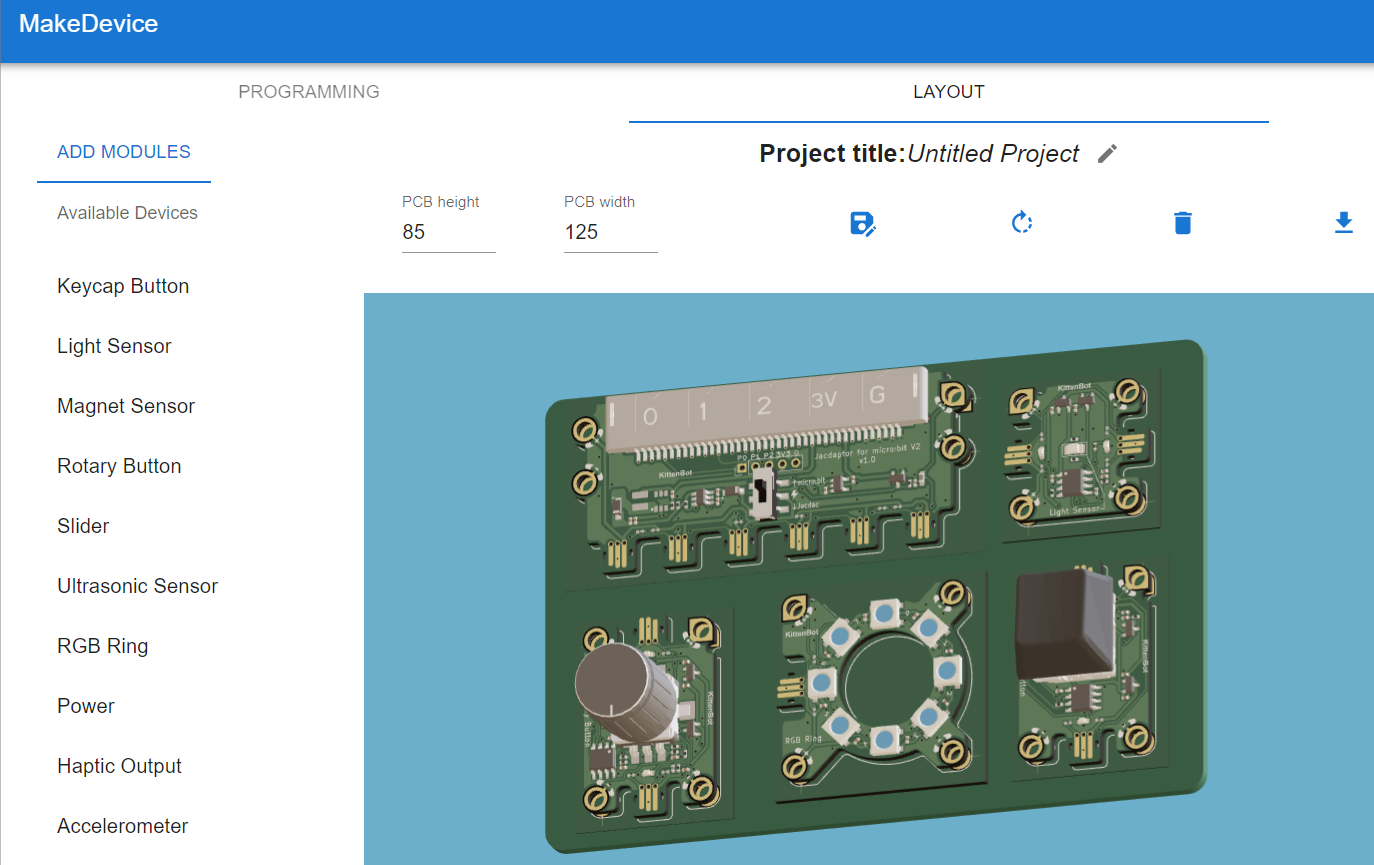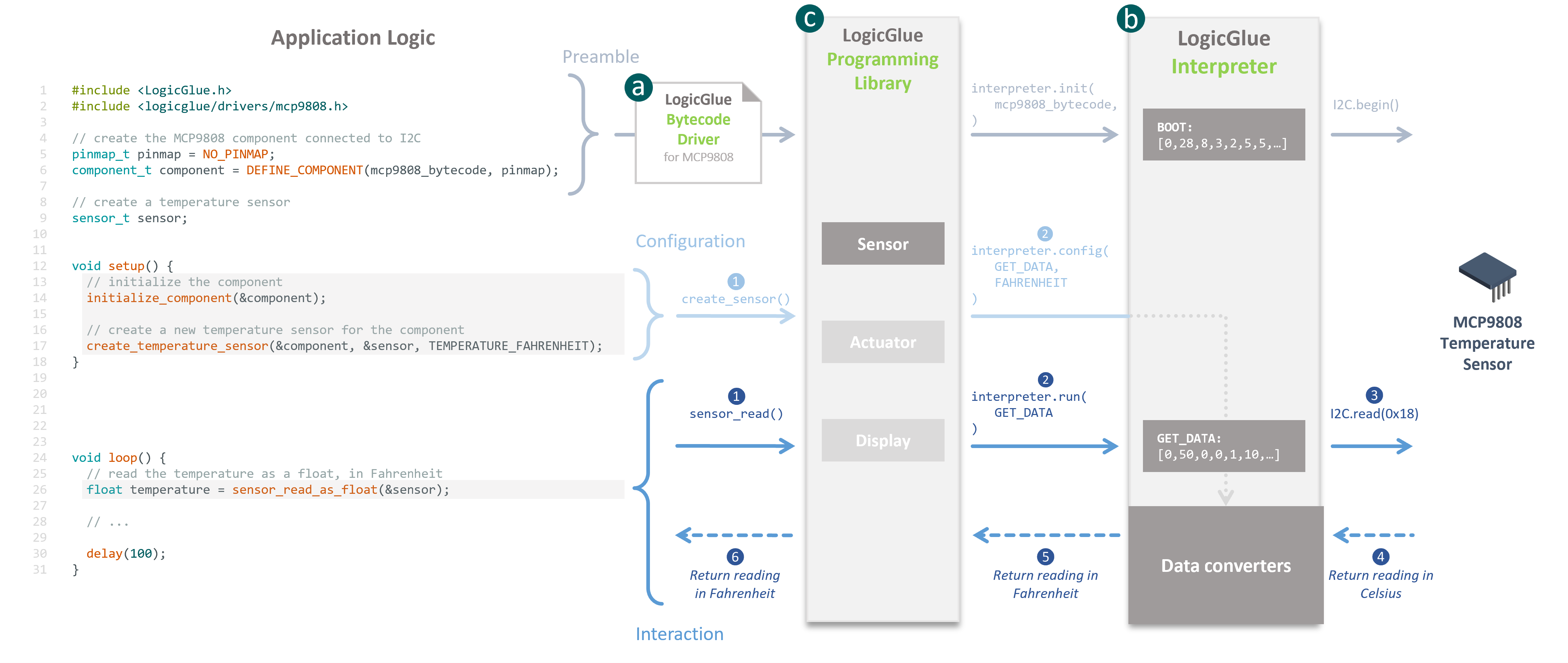Research
Explore our research projects and publications
- IMWUT '23

Research Paper
CircuitGlue: A Software Configurable Converter for Interconnecting Multiple Heterogeneous Electronic Components
Mannu Lambrichts, Raf Ramakers, Steve Hodges, James Devine, Lorraine Underwood, Joe Finney
CircuitGlue is an electronic prototyping board that facilitates the connection of various off-the-shelf electronic components and modules. The board's input header is software-configurable, allowing modules to be instantly compatible regardless of differences in voltage levels, interface types, communication protocols, and pinouts.
- IDC '23
Research Paper
Introducing Classroom Cloudlet: a mobile, tangible, and transparent approach to Internet of Things education
Lorraine Underwood, Elizabeth Edwards, John Edward Vidler, Elisa Rubegni, Joe Finney
- IDC '23
Research Paper
Supporting fieldwork for primary education with computing - micro:bit, clip:bit and game controllers
Elizabeth Edwards, John Edward Vidler, Lorraine Underwood, Elisa Rubegni, Joe Finney
Poster
Connecting primary-aged children to place through teaching data science with physical computing tools
Lorraine Underwood, John Edward Vidler, Richard Harper, Liz Edwards, Joe Finney, Elisa Rubegni, Steve Hodges
- EICS '25

Research Paper
LogicGlue: Hardware-Independent Embedded Programming Through Platform-Independent Drivers
Mannu Lambrichts, Raf Ramakers, Steve Hodges
LogicGlue is a platform-independent driver system that decouples application logic from hardware specifics, enabling embedded programs to run across different microcontrollers without modification. It preserves native component features and protocols, simplifying prototyping while maintaining flexibility in hardware choice.
- TEI '23
Research Paper
MakeDevice: Evolving Devices Beyond the Prototype with Jacdac
Kobi Hartley, Joe Finney, Steve Hodges, Peli De Halleux, James Devine, Gabriele D'Amone
MakeDevice abstract todo
- IMWUT '21
Research Paper
A Survey and Taxonomy of Electronics Toolkits for Interactive and Ubiquitous Device Prototyping
Mannu Lambrichts, Raf Ramakers, Steve Hodges, Sven Coppers, James Devine
Over the past two decades, many toolkits for prototyping interactive and ubiquitous electronic devices have been developed. Although their technical specifications are often easy to look up, they vary greatly in terms of design, features and target audience, resulting in very real strengths and weaknesses depending on the intended application. These less technical characteristics are often reported inconsistently, if at all. In this paper we provide a comprehensive survey of interactive and ubiquitous device prototyping toolkits, systematically analysing their characteristics within the framework of a new taxonomy that we present. In addition to the specific characteristics we cover, we introduce a way to evaluate toolkits more holistically, covering user needs such as 'ease of construction' and 'ease of moving from prototype to product' rather than features. We also present results from an online survey which offers new insights on how the surveyed users prioritize these characteristics during prototyping, and what techniques they use to move beyond prototyping. We hope our analysis will be valuable for others in the community who need to build and potentially scale out prototypes as part of their research. We end by identifying gaps that have not yet been addressed by existing offerings and discuss opportunities for future research into electronics prototyping toolkits.